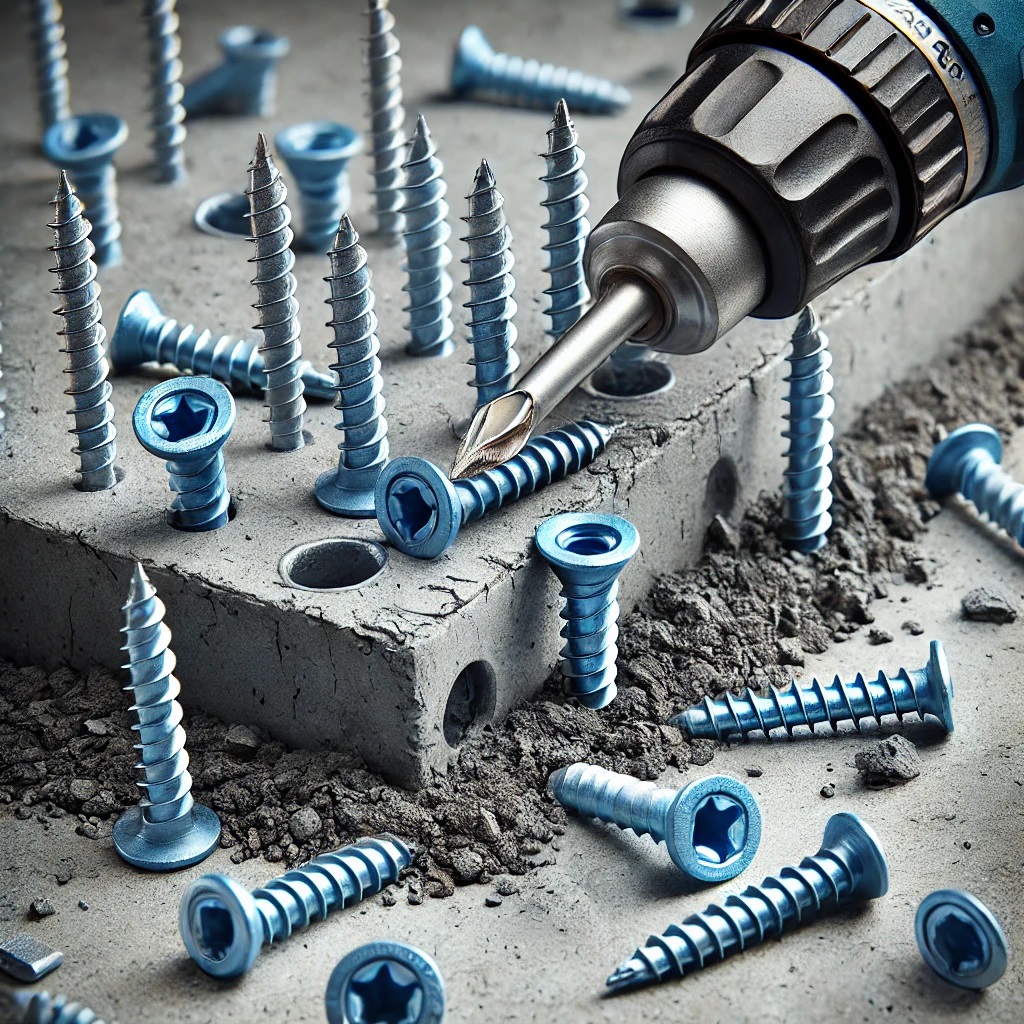
Introduction
When it comes to securing items to concrete surfaces, finding the right fastener is crucial for ensuring stability and safety. Tap Cons, a popular type of concrete screw, are often considered for such tasks. But are Tap Cons suitable for concrete? This article delves into the various aspects of Tap Cons, examining their suitability, installation, advantages, and comparisons with other fasteners.
What Are Tap Cons?
Understanding Tap Cons
Tap Cons are specially designed screws used to fasten materials to concrete, brick, or block. These screws are unique because they cut threads into the material as they are driven in, creating a strong and secure hold.
Materials Used in Tap Cons
Typically, Tap Cons are made from high-carbon steel and are often coated with blue Climaseal or other corrosion-resistant coatings. This makes them durable and suitable for both indoor and outdoor applications.
Types of Tap Cons
Tap Cons come in various sizes and head styles, including flat head, hex head, and mushroom head. Each type is suited for different applications, providing versatility for users.
Why Choose Tap Cons for Concrete?
Advantages of Using Tap Cons
Tap Cons offer several benefits for concrete applications:
- Strong Hold: Their unique thread design provides a strong grip in concrete.
- Ease of Installation: They can be installed quickly with minimal tools.
- Versatility: Suitable for a wide range of applications, from light fixtures to heavy-duty projects.
- Corrosion Resistance: Coatings protect against rust and corrosion, enhancing longevity.
Comparing Tap Cons with Other Fasteners
Compared to other concrete fasteners like wedge anchors or sleeve anchors, Tap Cons are often preferred for their ease of installation and removal. They are also less likely to cause cracking in the concrete, making them a safer option for certain applications.
How to Install Tap Cons in Concrete
Preparation
- Select the Right Size: Choose a Tap Con screw appropriate for the thickness of the material you are fastening.
- Drill the Hole: Use a hammer drill with a carbide-tipped bit to drill a hole slightly smaller than the screw.
Installation Steps
- Clean the Hole: Remove dust and debris from the hole to ensure a tight fit.
- Insert the Screw: Place the Tap Con into the hole and drive it in using a screwdriver or drill. Apply steady pressure to avoid over-tightening.
Common Applications of Tap Cons
Construction and Renovation
In construction, Tap Cons are commonly used for attaching steel or wood framing to concrete floors and walls. They are also used in renovation projects for installing fixtures, cabinets, and shelving.
Electrical and Plumbing
Electricians and plumbers use Tap Cons to secure conduit, junction boxes, and other hardware to concrete surfaces. Their reliable hold ensures safety and compliance with building codes.
Outdoor and Landscaping
For outdoor projects, Tap Cons are ideal for securing decking, fencing, and other structures to concrete patios or foundations. Their corrosion resistance makes them suitable for various weather conditions.
Troubleshooting Common Issues
Difficulty in Insertion
If a Tap Con is difficult to insert, it may be due to an undersized hole or debris in the hole. Ensure the hole is the correct size and clean.
Screw Breakage
Over-tightening or using the wrong size screw can cause breakage. Use the recommended installation torque and screw size for the application.
Conclusion
Tap Cons are indeed suitable for concrete applications, offering a reliable, strong, and easy-to-install solution for a variety of projects. Whether you are working on construction, renovation, or outdoor landscaping, Tap Cons provide the versatility and performance needed to ensure your work is secure and durable. Always choose the right size and type of Tap Con for your specific needs, and follow proper installation procedures to achieve the best results.
FAQs
Are Tap Cons suitable for all types of concrete?
Yes, Tap Cons are suitable for various types of concrete, including poured concrete, precast concrete, and concrete blocks.
Can Tap Cons be removed and reused?
While Tap Cons can be removed, reusing them is not recommended as their threads may be damaged, reducing their holding capacity.
Do Tap Cons require pre-drilling?
Yes, pre-drilling a hole is necessary to ensure the Tap Con threads properly into the concrete and provides a secure hold.
What is the maximum weight a Tap Con can support?
The weight capacity of a Tap Con depends on its size and the type of concrete. Always refer to manufacturer specifications for load ratings.
Are there any alternatives to Tap Cons for concrete?
Yes, alternatives include wedge anchors, sleeve anchors, and expansion bolts. The choice depends on the specific requirements of the project.
Can Tap Cons be used for outdoor applications?
Yes, Tap Cons with appropriate corrosion-resistant coatings can be used for outdoor applications.
